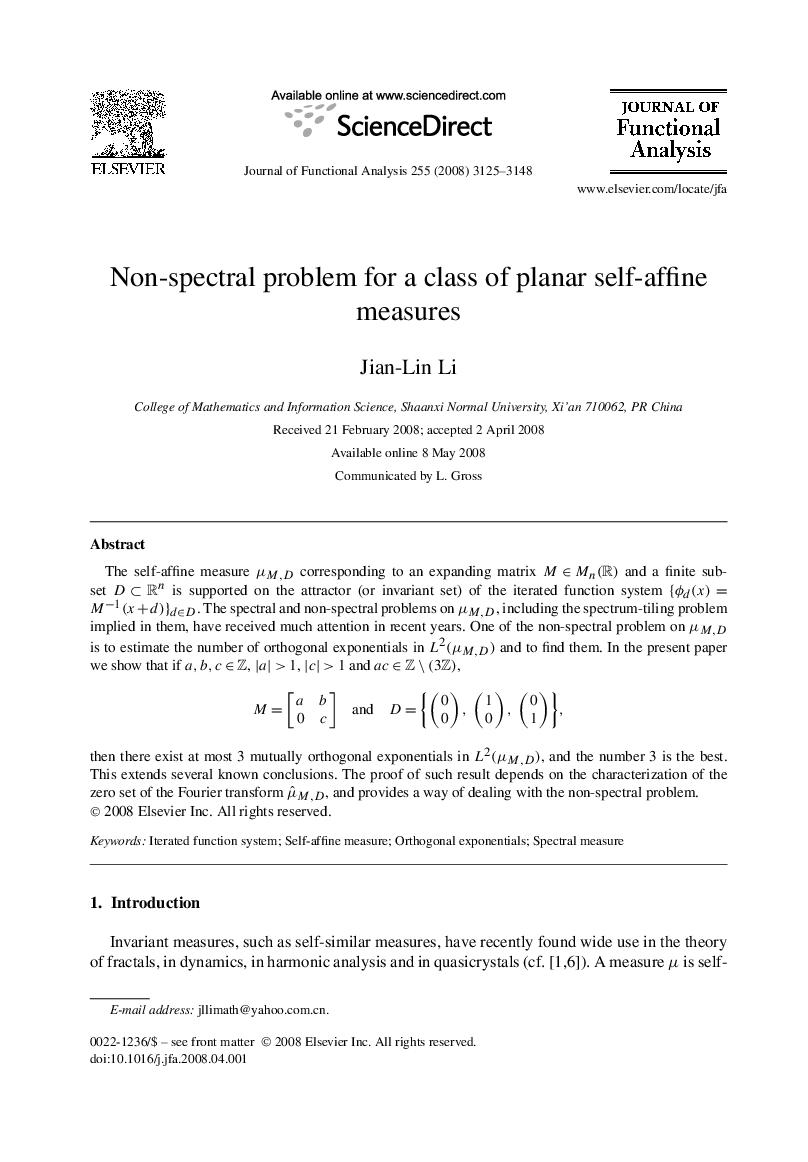| Article ID | Journal | Published Year | Pages | File Type |
|---|---|---|---|---|
| 4591672 | Journal of Functional Analysis | 2008 | 24 Pages |
The self-affine measure μM,DμM,D corresponding to an expanding matrix M∈Mn(R)M∈Mn(R) and a finite subset D⊂RnD⊂Rn is supported on the attractor (or invariant set) of the iterated function system {ϕd(x)=M−1(x+d)}d∈D{ϕd(x)=M−1(x+d)}d∈D. The spectral and non-spectral problems on μM,DμM,D, including the spectrum-tiling problem implied in them, have received much attention in recent years. One of the non-spectral problem on μM,DμM,D is to estimate the number of orthogonal exponentials in L2(μM,D)L2(μM,D) and to find them. In the present paper we show that if a,b,c∈Za,b,c∈Z, |a|>1|a|>1, |c|>1|c|>1 and ac∈Z∖(3Z)ac∈Z∖(3Z),M=[ab0c]andD={(00),(10),(01)}, then there exist at most 3 mutually orthogonal exponentials in L2(μM,D)L2(μM,D), and the number 3 is the best. This extends several known conclusions. The proof of such result depends on the characterization of the zero set of the Fourier transform μˆM,D, and provides a way of dealing with the non-spectral problem.
